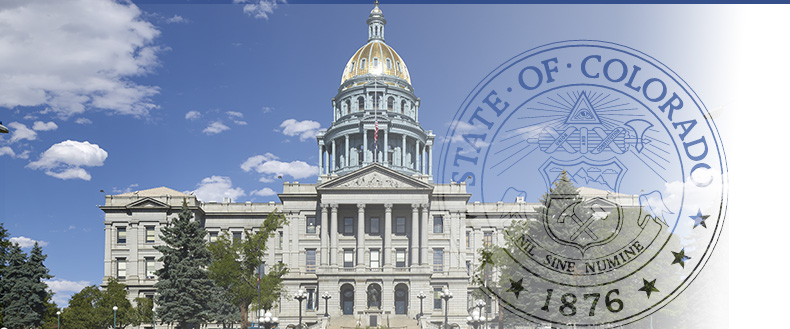Denver’s $1 Billion Choice: What Bond Measures 2A–2E Mean for Your Streets, Parks, and Housing

Denver’s $1 Billion Choice: What Bond Measures 2A–2E Mean for Your Streets, Parks, and Housing

Summary
This November 4, Denver voters will face five separate ballot questions—Measures 2A through 2E—collectively known as the “Vibrant Denver” bond program. Totaling nearly $1 billion, these measures propose funding a wide range of infrastructure projects, including street repairs, park improvements, libraries, health facilities, and affordable housing.
Each measure stands alone on the ballot. Voters must decide individually whether to approve or reject each bond package.
If approved, the General Obligation (GO) Bonds will be repaid over more than 20 years using existing property tax revenues—without increasing tax rates. Still, this would significantly increase the city’s overall debt level.
What’s on the Ballot?
Each measure targets different projects, forcing voters to balance priorities. Approval of one measure doesn’t guarantee funding for all citywide projects; failure could delay or cancel key initiatives.
Measure 2A: Transportation & Mobility — $441.4 million
Key Projects:
* Rebuild of the 6th and 8th Avenue viaducts ($149M combined)
* Santa Fe Streetscape upgrades with safer sidewalks and bike lanes ($29.1M)
* West 38th multimodal improvements linking Sheridan to Fox Street ($55.3M)
* The Marion Street Underpass in Globeville-Elyria-Swansea reconnects neighborhoods ($75M), improving pedestrian, bike, and vehicle access while enabling future development, such as affordable housing near the National Western Center.
* 38th and Blake St. Underpass Safety, lighting, structural repairs, signalization improvements, and enhanced pedestrian/bicycle experience through the aging underpass (7.6M)
The Bigger Picture:
Approving 2A will enable the City to invest significantly near the new football and soccer stadium sites. Meanwhile, the over 100-year-old, heavily trafficked two-lane railroad bridge underpass at 38th and Blake St will receive only cosmetic repairs and upgrades, ignoring community concerns such as flooding and reconfiguration.
Measure 2B: Parks & Recreation — $174.8 million
Key Projects:
* Redevelopment of Park Hill Golf Course into a new regional park ($70M). Note: The City just completed the acquisition of this property this week.
* Replacement of aging Aztlan Pool ($15M)
* Southeast Recreation Center and Skate Hub ($20M)
* Cherry Creek Trail lighting improvements ($1.5M)
* Upgrades across city parks, including Washington Park, Garland Park, and Montbello Recreation Center
The Bigger Picture:
This measure primarily focuses on the Phase 1-only development of the new Park Hill Park in northeast Denver. It has sparked debate, and approving 2B means prioritizing green space and recreation over what others call a pressing need for housing. The tradeoff is improvements to select recreation centers, parks, trails, and pools.
Measure 2C: Health & Human Services — $30.1 million
Key Projects:
* Construction of a new Westside Family Health Clinic ($20M)
* Construction of a new westside Trauma-informed Children’s Advocacy Center ($10M)
The Bigger Picture:
The smallest bond is targeting critical health services gaps. While voters may view this as vital, some question the need for new facilities.
Measure 2D: Public Facilities & Cultural Institutions — $244.4 million
Key Projects:
* $75M First Responder Training Center
* Blair-Caldwell Library renovations ($12.3M), despite recent upgrades
* Red Rocks Amphitheater backstage improvements ($35.1M)
* Boettcher Concert Hall repairs ($20M)
* Capital projects at Denver Zoo, Botanic Gardens, and Art Museum (~$3M each)
* American Indian Cultural Embassy ($20M)
* Library renovations at Decker, Bear Valley, and Montbello libraries (no clear plans or timelines)
The Bigger Picture:
The tradeoff means voters face a choice between improving beloved cultural institutions, libraries, and community spaces, and two new facilities. Details on the American Indian Center in District 11 reveal that the cost reportedly jumped from $5 million to $20 million with no definitive plans in place. And the First Responder Training Center still has no specific location identified or other details finalized. This tradeoff raises concerns about transparency and fiscal responsibility.
Measure 2E: Housing & Shelter — $59.3 million
Key Projects:
* $45M for affordable housing land and site acquisition, without detailed scale or locations
* $11.4M for shelter safety and ADA upgrades, including Comfort Inn shelter
* $10M for a combined East Side library and housing project, details scarce
The Bigger Picture:
Most funding targets affordable housing acquisition, but projects lack specifics on units or neighborhoods. The Comfort Inn shelter upgrade is questionable, as the facility may be slated to close by mid-2026. These appear to be loosely defined projects due to concerns about accountability, transparency, and fiscal responsibility.
Bottom Line:
Denver’s “Vibrant Denver” bond program offers voters a chance to fund long-term improvements—but each measure must be voted on separately. You’re not voting on a single $1 billion package—you’re weighing five distinct proposals, each with its own trade-offs, benefits, and unanswered questions.
Although no new taxes are proposed, the city will incur significant new debt. Some projects are clearly defined and urgent, while others lack timelines or specific details. That is very concerning.
If all five bond measures pass, Denver taxpayers could repay between $1.4 billion and $1.9 billion over the life of the bonds, depending on interest rates and the terms of financing. The city plans to utilize existing property tax revenue, so no tax rate increase is proposed; however, overall city debt is expected to grow. For a typical $500,000 home, current debt payments are about $200/year, and that amount is expected to remain relatively stable; however, it’s important to note that while the tax rate stays the same, the total amount you pay could still rise if your property value increases in future assessments.
Ballots will be mailed starting October 14. Election Day is November 4.
To learn more and view detailed project maps, visit www.denvergov.org.
